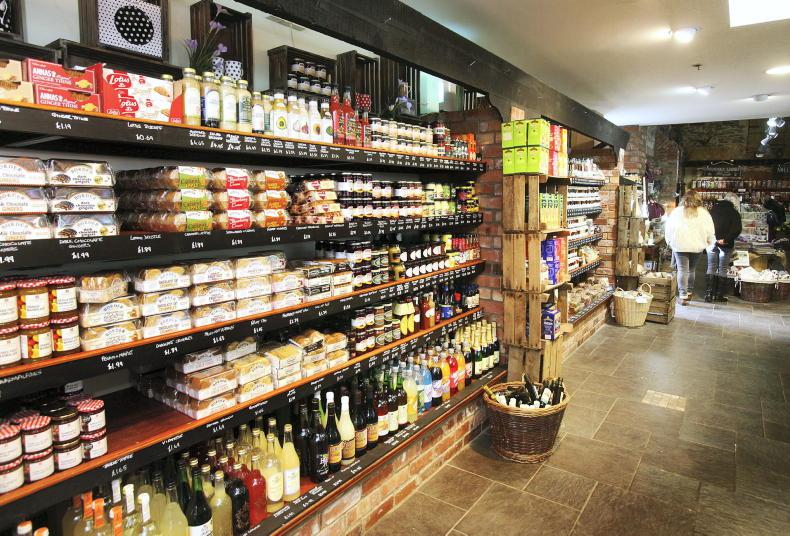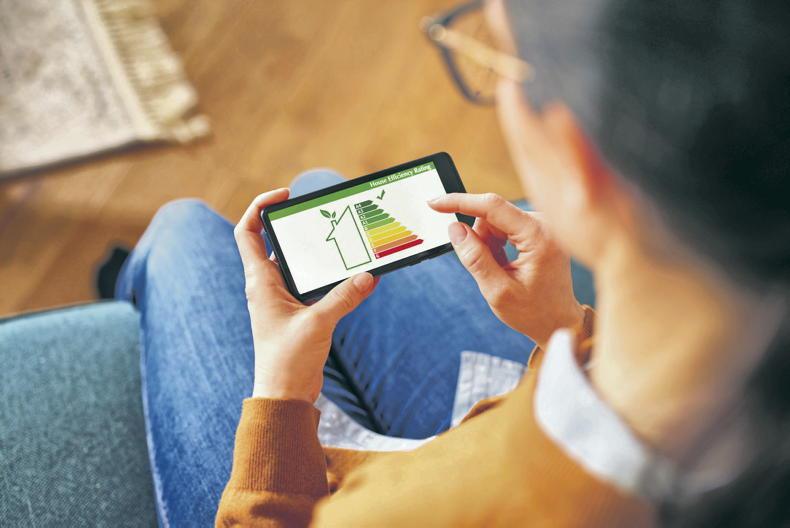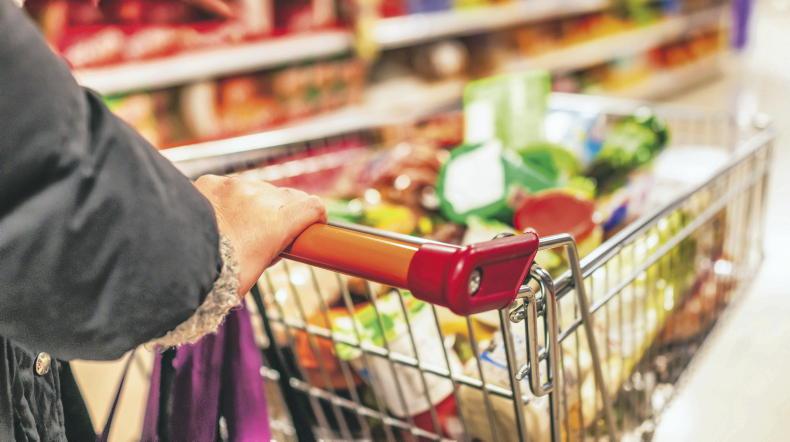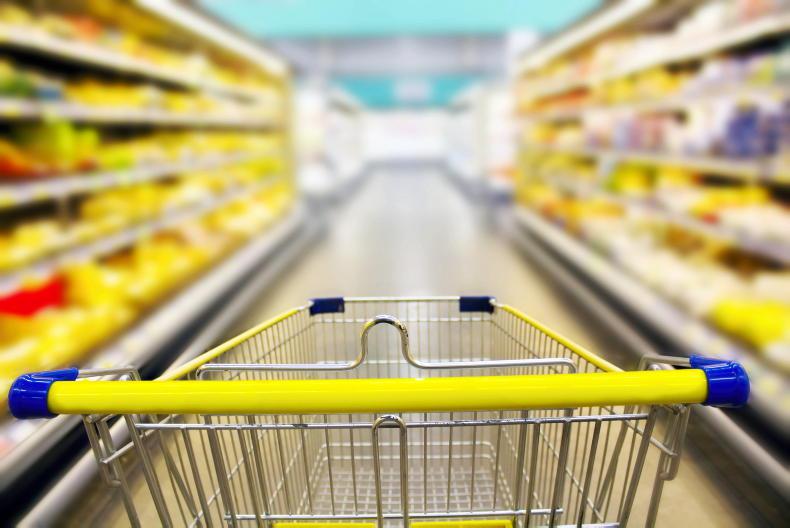Grocery inflation, the increase in the cost of groceries in Ireland over time, has hit its highest level since 2008 at 7.7%.
“Food and drink prices are continuing to climb and the impact of this on shopping budgets is now unavoidable for many consumers,” says Kantar senior retail analyst Emer Healy.
She said the continued inflation comes despite consumer spending on take-home grocery sales in Ireland falling by 3.1% over the 12 weeks to 10 July 2022. However, this spending decline has slowed over the latest four weeks, with a drop of 0.9%.
The analysis which shows that, overall, consumers are spending less on their groceries, which are continuing to become more expensive, was released by Kantar on Monday.
Kantar is a data analytics and brand consulting company and regularly publishes its insights on the Irish grocery sector.
Cheaper alternatives
To combat grocery product inflation of 7.7%, Kantar says “shoppers are altering their behaviour” by “turning towards cheaper alternatives and reducing their shopping frequency”.
“Consumers are now making two less trips to the supermarket on average compared with this time last year,” said Healy.
Kantar explained that branded food items are feeling the impact of this, with “clear signs” that food shoppers are “turning to retailers’ own label offerings instead, which tend to be less expensive”.
“As a result, brands’ share of grocery spend has dropped to 47.6%, from 49.6% in 2020, with shoppers spending €72m less on branded goods year on year,” Healy said.
Sales of own-label goods grew 1.5% over the last 12 weeks, with shoppers spending €19m more year on year.
Sales of own-label ranges at Tesco, Dunnes, Lidl and the online retailers grew by 21.1% collectively, ahead of the overall own-label market.
Retailers’ own label now accounts for 46.7% of the Irish grocery market in terms of consumer spend, compared with 44% in 2020.
In particular, shoppers are turning towards the value ranges within own-label products, with sales jumping 9.7% as shoppers spent €4.8m more year on year.
Meat spends
Despite the grocery inflation, consumers took advantage of brighter and warmer days of late and cooked more barbecues, says Kantar.
It found that over the past four weeks, shoppers spent an additional €540,000 on take-home savouries, €170,000 on chilled burgers and grills and €656,000 on fresh sausages.
However, Kantar warned that such consumers are “likely to feel the pinch as a result, as due to rising prices the cost of hosting a barbecue has increased on average 7.4% over the last year”.
Retailers
According to the Kantar analysis of the Irish grocery market, Tesco Ireland now holds a 22% share of total grocery market spend, seeing growth of 0.1% in the last 12 weeks after welcoming four million additional shoppers.
Dunnes holds a 21.9% share of spend, having grown 1.5% over the last 12 weeks by attracting new shoppers, which contributed an additional €23.2m to its overall sales performance.
SuperValu, with a 21.5% share, continues to see shoppers returning to its stores more often than any other retailer.
Lidl, holding 13.5% of the market, also welcomed new shoppers to its stores, which contributed an additional €13.6m to its overall performance.
Aldi, with a 12.6% share, boosted its shopper base by 1%. Combined with shoppers making more return trips, this contributed an additional €8.6m to its overall performance.
Read more
83% of adults say grocery prices are ‘unacceptably high’
Grocery inflation, the increase in the cost of groceries in Ireland over time, has hit its highest level since 2008 at 7.7%.
“Food and drink prices are continuing to climb and the impact of this on shopping budgets is now unavoidable for many consumers,” says Kantar senior retail analyst Emer Healy.
She said the continued inflation comes despite consumer spending on take-home grocery sales in Ireland falling by 3.1% over the 12 weeks to 10 July 2022. However, this spending decline has slowed over the latest four weeks, with a drop of 0.9%.
The analysis which shows that, overall, consumers are spending less on their groceries, which are continuing to become more expensive, was released by Kantar on Monday.
Kantar is a data analytics and brand consulting company and regularly publishes its insights on the Irish grocery sector.
Cheaper alternatives
To combat grocery product inflation of 7.7%, Kantar says “shoppers are altering their behaviour” by “turning towards cheaper alternatives and reducing their shopping frequency”.
“Consumers are now making two less trips to the supermarket on average compared with this time last year,” said Healy.
Kantar explained that branded food items are feeling the impact of this, with “clear signs” that food shoppers are “turning to retailers’ own label offerings instead, which tend to be less expensive”.
“As a result, brands’ share of grocery spend has dropped to 47.6%, from 49.6% in 2020, with shoppers spending €72m less on branded goods year on year,” Healy said.
Sales of own-label goods grew 1.5% over the last 12 weeks, with shoppers spending €19m more year on year.
Sales of own-label ranges at Tesco, Dunnes, Lidl and the online retailers grew by 21.1% collectively, ahead of the overall own-label market.
Retailers’ own label now accounts for 46.7% of the Irish grocery market in terms of consumer spend, compared with 44% in 2020.
In particular, shoppers are turning towards the value ranges within own-label products, with sales jumping 9.7% as shoppers spent €4.8m more year on year.
Meat spends
Despite the grocery inflation, consumers took advantage of brighter and warmer days of late and cooked more barbecues, says Kantar.
It found that over the past four weeks, shoppers spent an additional €540,000 on take-home savouries, €170,000 on chilled burgers and grills and €656,000 on fresh sausages.
However, Kantar warned that such consumers are “likely to feel the pinch as a result, as due to rising prices the cost of hosting a barbecue has increased on average 7.4% over the last year”.
Retailers
According to the Kantar analysis of the Irish grocery market, Tesco Ireland now holds a 22% share of total grocery market spend, seeing growth of 0.1% in the last 12 weeks after welcoming four million additional shoppers.
Dunnes holds a 21.9% share of spend, having grown 1.5% over the last 12 weeks by attracting new shoppers, which contributed an additional €23.2m to its overall sales performance.
SuperValu, with a 21.5% share, continues to see shoppers returning to its stores more often than any other retailer.
Lidl, holding 13.5% of the market, also welcomed new shoppers to its stores, which contributed an additional €13.6m to its overall performance.
Aldi, with a 12.6% share, boosted its shopper base by 1%. Combined with shoppers making more return trips, this contributed an additional €8.6m to its overall performance.
Read more
83% of adults say grocery prices are ‘unacceptably high’









SHARING OPTIONS